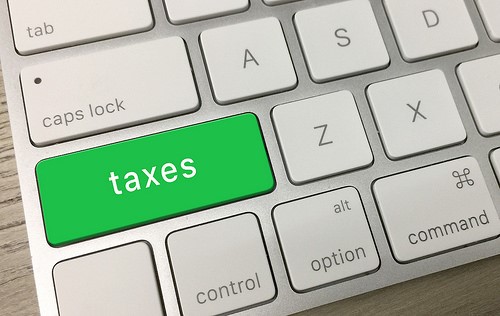If you file your tax return late or not at all, and you owe money, you could face serious consequences. Tax mistakes and willful avoidance can cause serious problems in your financial life. Here are some things that can happen when you don’t file your return correctly, or if you file past the due date.
Pay More Money
When you owe taxes, the IRS adds interest and penalties to your balance until you pay the debt. Also, the IRS has three years from the date you file a return to complete an audit. If you don’t submit a tax return, the clock doesn’t start. The IRS has more time to audit your return and find possible mistakes.
Don’t skip filing your taxes. If you do, the IRS may file a return for you. You’ll have to accept it based on a short-form return and the standard deduction. You don’t get the chance to submit itemized deductions that could save you money.
Spend Time and Money on Tax Resolutions
If you owe the IRS money, work to resolve the situation as soon as possible. You’ll have to spend time and additional funds to get the best possible outcome. Since tax rules are complicated, a successful tax resolution may involve hiring a tax attorney to represent you with the IRS.
Forfeit Your Refund, Tax Credits, and Loans
You can lose money even if don’t owe a tax payment. If you are due a refund, you can’t get that money if you don’t file a tax return. If you qualified for tax credits, you’d lose those too. Not filing a return can also stop you from getting a home or auto loan. Many loan providers require copies of your tax returns to qualify for funds. If you didn’t file, you wouldn’t be able to provide this documentation.
Face Collections Activity and Criminal Charges
When the IRS wants to collect money, you may receive an unwelcome Intent to Levy or Lien notice in your mailbox. A levy means that the government plans to seize your assets. A levy can include a wage garnishment. Your employer will receive notification that you owe the IRS, and then take money out of your paycheck to pay the debt. When the IRS places a lien on your assets, you can’t sell that property until you pay the tax bill. If the IRS suspects tax evasion, you can face criminal charges and fines.
To avoid tax consequences, file your tax return on time, review IRS rules carefully, don’t try to cheat, and save documentation for your deductions. If you have a complicated return or may be subject to criminal charges, consider hiring a professional tax advisor.
Even when you work to pay your taxes correctly, honest mistakes or hardships can make it impossible to file your tax return and make payments on time. If you receive a failure-to-pay penalty from the IRS, respond with the requested documentation quickly. For complex matters, work with your tax advisor or an attorney to ensure a prompt resolution.
Image via Flickr by CreditDebitPro
Related Posts












